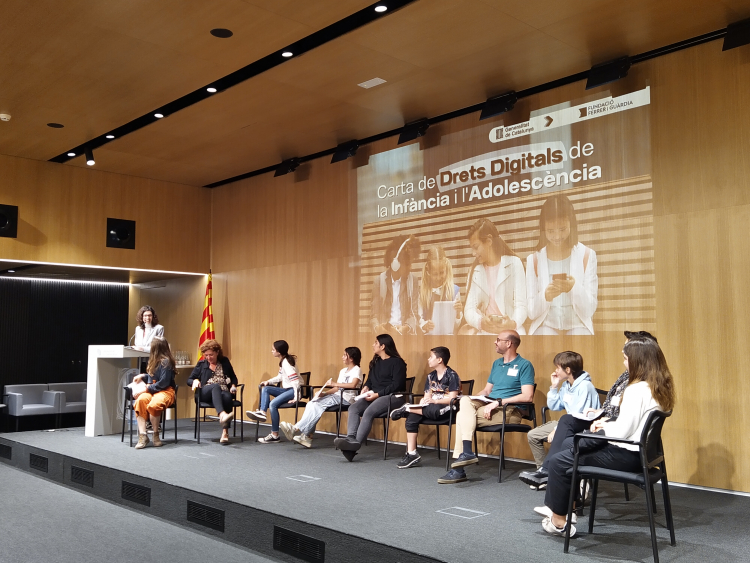Last Friday, May 12, the Secretariat of Digital Policies of the Department of Business and Labor of the Generalitat of Catalonia, with the collaboration of the Ferrer i Guàrdia Foundation, presented the Report on the Digital Rights of Children and the 'Adolescence . The initiative is part of the Catalan Charter for Digital Rights and Responsibilities, a participatory project that aims to define a regulatory and democratic framework to guarantee human rights in the digital age. The initial proposal is constantly revised and improved.
The presentation, which took place from 10 to 11:30 a.m. in the Auditorium of the Administrative District, which is located at Carrer del Foc number 57 in the city of Barcelona, began with a welcome by Liliana Arroyo, general director of Digital Society, who emphasized the importance of sharing the results of the project, as well as the essence of the initiative. Then, the Ferrer i Guàrdia Foundation presented the main key points of the report, which has had the participation of 18 educational centers and 854 children and adolescents aged 7 to 17 from all the vegueries of Catalonia and educational centers with different socioeconomic realities.
Then, an interesting round table was held with children, teenagers and teachers who have participated in the project. Specifically, Teo Puigdevall, Lola Bofarull and Judit Ester from IE Costa Llobera took part; Vera Martín, Jaycob Gordillo, Eurice Guillén and Daniel Sánchez from IE Teresa Altet, and Victòria Valero and Amparo Esterlich from IE Antaviana. Also, two students from IE El Prat attended the event in person and some representatives from other educational centers connected virtually to follow the presentation online. During the colloquium, the demands presented were the improvement of prevention and online security, the universalization of Internet access and the promotion of a critical spirit within the digital world. Along these lines, some of the proposals were to categorize the contents in order to avoid finding information that is not suitable, to communicate the risks in a simple and visual way, to have more training when receiving the first technological device or to have a telephone of support on technological issues. In the same way, children and adolescents agreed on the demand to increase the trust on the part of their families regarding the good use of technologies and proposed to agree on new forms of supervision and control.
Afterwards, a conversation space was opened between children, teenagers, teachers and the attending public. Finally, Liliana Arroyo, director general of Sociedad Digital, closed the presentation of the Report on Digital Rights of Children and Adolescents by thanking the participation and involvement in the initiative and announced that in the coming months would work hand in hand with the Ferrer i Guàrdia Foundation in the drafting of a manifesto to collect the demands expressed by children and adolescents who have participated in the project.



